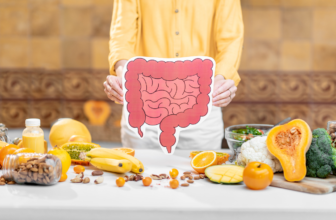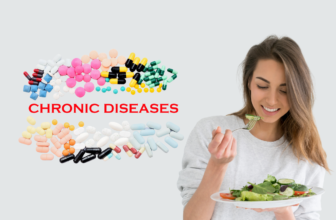The Impact of Food Allergies on Dietary Choices and Health
When someone has a food allergy, it means that their immune system mistakenly identifies certain proteins in food as harmful substances. This triggers an immune response, which can manifest in various ways, such as hives, itching, swelling, difficulty breathing, or even anaphylaxis, a severe and potentially life-threatening reaction. As a result, individuals with food allergies must be extremely cautious about what they eat and often need to eliminate certain foods from their diet entirely.
Table of Contents
ToggleThe impact of food allergies on dietary choices is far-reaching. It goes beyond simply avoiding the specific allergenic foods. Many processed foods contain hidden allergens or may be cross-contaminated during manufacturing processes. This means that individuals with food allergies must carefully read ingredient labels and be aware of potential cross-contamination risks, even in foods that would not typically contain the allergen.
As a consequence, individuals with food allergies often find themselves needing to prepare their meals from scratch, as it is the only way to ensure that their food is free from allergens. This can be time-consuming and require a significant amount of planning and effort. It also limits their ability to eat out or enjoy meals at social gatherings, as they cannot always trust that the food served will be safe for them to consume.
Moreover, the need to avoid certain foods can lead to nutritional deficiencies if not managed carefully. For example, someone with a dairy allergy may need to find alternative sources of calcium and vitamin D, which are essential for bone health. Similarly, individuals with a gluten allergy or celiac disease must be vigilant about getting enough fiber, iron, and B vitamins, as these nutrients are commonly found in foods that contain gluten.
Additionally, the impact of food allergies on a person’s mental and emotional well-being should not be overlooked. Constantly worrying about accidental exposure to allergens can create anxiety and stress. It can also be challenging to navigate social situations where food is central, leading to feelings of isolation or exclusion.
Overall, the impact of food allergies on dietary choices and health is profound. It requires individuals to be vigilant, knowledgeable, and proactive in managing their condition. It also highlights the importance of raising awareness about food allergies, promoting accurate labeling, and creating inclusive environments where individuals with food allergies can feel safe and supported in their dietary choices.
One of the most common food allergies is peanuts. Peanuts are actually legumes, not nuts, but they can still cause severe allergic reactions in some people. Just a small amount of peanut protein can be enough to trigger an allergic response, and even trace amounts of peanuts can be dangerous for those with a peanut allergy.
Tree nuts, such as almonds, walnuts, and cashews, are another common allergen. Like peanuts, even a tiny amount of tree nut protein can cause an allergic reaction. People with a tree nut allergy often need to avoid all types of tree nuts, as cross-contamination is a concern.
Milk is a common allergen in infants and young children, although many will outgrow this allergy as they get older. The proteins in cow’s milk can cause an immune response, leading to symptoms such as rashes, vomiting, and diarrhea. In severe cases, anaphylaxis can occur.
Eggs are another allergen that affects both children and adults. The proteins in eggs can cause a range of symptoms, including skin reactions, digestive issues, and respiratory problems. Some people may be allergic to only the egg white or the yolk, while others may be allergic to both.
Soy is a common allergen, especially in infants and young children. Soybeans and soy products contain proteins that can trigger an allergic response. Symptoms of a soy allergy can range from mild to severe and may include hives, itching, swelling, and difficulty breathing.
Wheat is a staple food in many diets, but for those with a wheat allergy, it can be problematic. The proteins in wheat can cause an immune response, leading to symptoms such as hives, itching, nausea, and abdominal pain. In severe cases, anaphylaxis can occur.
Fish and shellfish allergies are more common in adults than in children. The proteins in fish and shellfish can cause allergic reactions ranging from mild to severe. Symptoms may include hives, swelling, gastrointestinal issues, and difficulty breathing. Some individuals may be allergic to only certain types of fish or shellfish, while others may need to avoid all varieties.
It’s important for individuals with food allergies to carefully read food labels and be aware of potential cross-contamination. Many packaged foods may contain hidden allergens, and dining out can be a challenge. Proper education, avoidance, and preparedness are key to managing food allergies and preventing potentially life-threatening reactions.
Impact on Dietary Choices
When someone has a food allergy, they must carefully read food labels and be aware of potential cross-contamination risks. This often leads to a more restricted diet, as many processed and packaged foods may contain hidden allergens or have been produced in facilities that also handle allergenic ingredients.
As a result, individuals with food allergies may have to avoid certain foods altogether or seek out alternative options. This can make dining out, attending social events, and traveling more challenging, as they must be vigilant about avoiding their allergens.
Furthermore, individuals with multiple food allergies may face even greater difficulties in finding suitable food choices. They may need to eliminate entire food groups from their diet, which can impact their overall nutritional intake and require careful planning to ensure they meet their dietary needs.
For example, someone with both a wheat allergy and a dairy allergy would need to avoid foods containing wheat and dairy products. This means they would need to eliminate common staples such as bread, pasta, milk, cheese, and yogurt from their diet. Finding suitable alternatives can be challenging, as many gluten-free or lactose-free products may still contain other allergens or may not meet their taste preferences.
In addition, individuals with food allergies may find themselves cooking more meals from scratch to ensure they have control over the ingredients used. This can be time-consuming and may require learning new cooking techniques and recipes to accommodate their dietary restrictions.
The impact of food allergies on dietary choices extends beyond just avoiding allergens. It can also affect the diversity and enjoyment of meals. Many individuals with food allergies may feel limited in their options and may struggle to find satisfying and flavorful alternatives. This can lead to feelings of frustration, isolation, and even disordered eating patterns.
Overall, food allergies can have a significant impact on an individual’s dietary choices. They require constant vigilance, careful planning, and a willingness to adapt to ensure nutritional needs are met while avoiding allergens. It is important for individuals with food allergies to seek support from healthcare professionals, dietitians, and support groups to navigate these challenges and maintain a healthy and balanced diet.
The Importance of Nutritional Balance
While avoiding allergenic foods is crucial for those with food allergies, it’s equally important to maintain a balanced and nutritious diet. Eliminating certain foods can lead to potential nutrient deficiencies if not properly managed.
For example, individuals with dairy allergies may need to find alternative sources of calcium and vitamin D, which are essential for bone health. Those with wheat allergies may need to ensure they obtain enough fiber and B vitamins from other sources.
Working with a registered dietitian who specializes in food allergies can be beneficial in developing a well-rounded meal plan that meets all nutritional needs. They can provide guidance on suitable substitutes for allergenic foods and help ensure that individuals with food allergies are getting all the necessary nutrients.
Moreover, a balanced and nutritious diet is important for overall health and well-being. It can help prevent chronic diseases such as obesity, diabetes, and heart disease. A diet that includes a variety of fruits, vegetables, whole grains, lean proteins, and healthy fats provides the body with essential vitamins, minerals, antioxidants, and phytochemicals.
These nutrients play a vital role in supporting the immune system, promoting healthy digestion, maintaining a healthy weight, and reducing the risk of developing various health conditions. For individuals with food allergies, it becomes even more crucial to focus on obtaining all the necessary nutrients from alternative sources.
By ensuring a balanced and nutritious diet, individuals with food allergies can support their overall health and minimize the potential negative impact of eliminating allergenic foods from their diet. It’s important to remember that food allergies should not be a barrier to achieving optimal nutrition and well-being.
Managing Food Allergies and Health
Proper management of food allergies is crucial for maintaining good health and preventing allergic reactions. Here are some strategies that can help:
1. Education and Awareness
Understanding one’s food allergies and being able to identify potential allergens is the first step in managing them effectively. It’s important to read food labels carefully, ask questions about ingredients when dining out, and be aware of cross-contamination risks.
Furthermore, educating oneself about the various names and forms of allergens can greatly assist in avoiding accidental exposure. For example, some individuals with a peanut allergy may not be aware that certain sauces or dressings contain peanut oil or peanut flour. By being well-informed, individuals can make informed choices and reduce the risk of allergic reactions.
2. Meal Planning and Preparation
Planning meals ahead of time and preparing food at home can give individuals with food allergies more control over their diet. By cooking from scratch, they can ensure that their meals are free from allergens and meet their nutritional needs.
In addition, meal planning can help individuals avoid last-minute food choices that may contain allergens. By having a well-thought-out meal plan, individuals can shop for safe ingredients and have peace of mind knowing that their meals are allergen-free.
3. Communication
Informing friends, family, and coworkers about food allergies is essential to avoid accidental exposures. It’s important to communicate clearly about the severity of the allergy and any necessary precautions to prevent cross-contamination or accidental ingestion.
Moreover, individuals with food allergies should not hesitate to advocate for themselves in social settings or when dining out. By clearly communicating their needs and concerns, they can ensure that their dietary restrictions are respected and that appropriate accommodations are made.
4. Seeking Support
Joining support groups or online communities for individuals with food allergies can provide a sense of community and helpful tips for managing allergies. Connecting with others who face similar challenges can be empowering and provide a wealth of knowledge and support.
Furthermore, support groups can serve as a platform for sharing experiences and learning from others’ strategies for managing food allergies. These communities can also be a source of emotional support, as individuals can find comfort in knowing that they are not alone in their journey.
5. Allergy Testing and Regular Check-ups
Regular visits to an allergist can help individuals stay informed about any changes in their allergies and receive appropriate medical advice. Allergy testing can help identify any new allergies or assess whether there have been any changes in existing allergies.
Additionally, allergists can provide personalized guidance on managing food allergies, including recommendations for emergency medications such as epinephrine auto-injectors. Regular check-ups can also ensure that individuals are up-to-date on the latest research and treatment options for food allergies.
In conclusion, managing food allergies requires a multi-faceted approach that encompasses education, planning, communication, support, and medical guidance. By implementing these strategies, individuals can navigate their food allergies with confidence and maintain their overall health and well-being.







